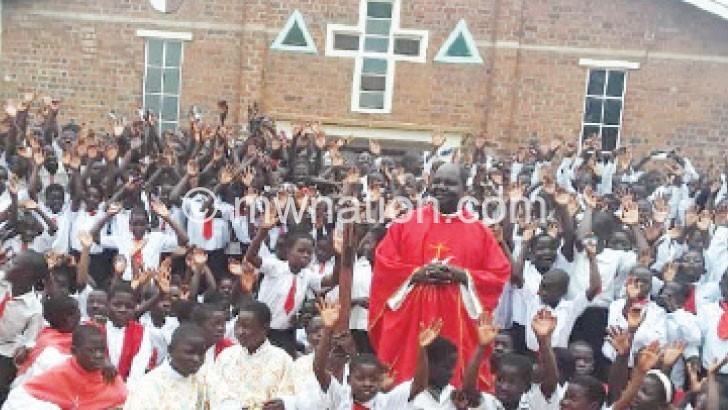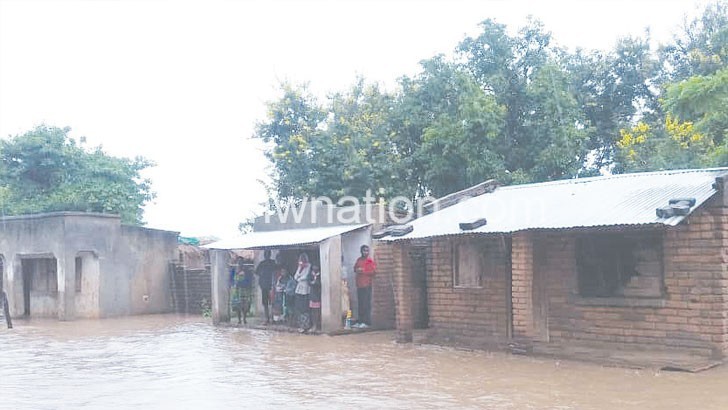SDA takes HIV by the horns
 Not long ago, insiders say, once a person was known to have been discovered with HIV, most congregations of the Seventh Day Adventist (SDA) Church would summon them to a disciplinary hearing. The crime or the punishment meted to such ‘offenders’ remain unknown. BRIGHT MHANGO finds out more.
Not long ago, insiders say, once a person was known to have been discovered with HIV, most congregations of the Seventh Day Adventist (SDA) Church would summon them to a disciplinary hearing. The crime or the punishment meted to such ‘offenders’ remain unknown. BRIGHT MHANGO finds out more.
What is known is that the church has changed, HIV issues are now being openly discussed in the church and so far the church is making important strides in trying to arrest the problem.
Dennis Matekenya is the HIV and Aids Ministries Director of the SDA church in Malawi, and his office boasts of various success stories from Chitipa, literally, to Nsanje via Zomba.
“There was time when the large number of membership and leadership of the church used to believe that to be HIV positive meant that you were a sinner because it was believed then that a true SDA church members had zero-chance of getting HIV.
“Therefore some members suffered as a result of getting tested positive. Church based stigma and discrimination was rampant at that time. However, at the moment, no church member can be disciplined as a result of being HIV positive. In fact, the church position is that no one loses their membership in the SDA Church on account of their HIV status. Therefore a member with HIV is still a member,†said Matekenya in an email interview.
Matekenya conceded that the church has a significant HIV problem and said the church being part of society cannot escape the problem.
The church banks on what it terms the SAVE Model which is derived from efforts to come up with SAFE practices to prevent new HIV infections, scale up ACCESS to treatment, nutrition, care and support, bolster VOLUNTARY counseling and testing; and a move towards EMPOWERMENT of people and institutions to deal with HIV and Its impacts.
â€This is a national program implemented in all districts and all regions in Malawi. The primary focus is rural communities where our members have limited or no access to HIV services. The program is implemented in all congregations in the Seventh-Day Adventist Church in Malawi,†reads a presentation from Matekenya’s office.
Under safe practices aimed at preventing infection, the church boasts of the eight couples who have given birth to HIV negative children in Karonga, the 275 boys that opted for surgical male circumcision in Makwasa, Thyolo and Namasalima in Mulanje.
It also reports of three discordant couples (where only one spouse is infected with HIV) at Salima Boma who are said to have vowed to continue consistently using condoms to prevent infecting the other.
In trying to ensure access to treatment, nutrition, care and support for those infected the SDA church said it has seen hundreds of its members get on Anti Retrovial Therapy (ART), helped create gardens to help bouy nutrition levels of the infected and children in early childhood development centres.
There are also bicycles and motorcycles in some areas ready to ferry the sick to hospital.
“Local church congregations are providing spiritual and physical care and support to the church members and members of the community who need those services due to their HIV and Aids status,†says the church.
The church is also aiming at providing what it terms voluntary and routine stigma-free counseling. It already boasts of church members queeing to get tested right in front of the church and in some cases the testing kits had to ran out while the queues were still long.
â€Partnership with Macro and Copred in Karonga and Blantyre has resulted in increased demand and uptake of HTC services which is also resulting in positive behaviour change. Copred has requested one of our churches in Limbe – Blantyre to be their testing centre,†declares Matekenya’s office.
There is also a push to implement programs that empower individuals, families, churches, communities and institutions to become HIV competent and reduce vulnerability to HIV and Aids by the church.
Support groups are being encouraged to adopt conservation agriculture to achieve high yields to better the nutrition among members while using minimal labour. There are also village saving loans where members get soft loans to start small businesses to bolster their income.
“In Karonga, Pass on Goats Programme is improving household incomes and nutrition. The manure is used in their backyard gardens to improve farm yields. In Chingale – Zomba women are knitting; men are making timber, mats and hoe-handles. Fifty percent of the profits go towards supporting orphans and vulnerable children.
“In Naluso – Mulanje, three sewing machines are used to train members from 10 support groups, and sewing uniforms for orphans and needy children. There are 20 beehives and owners contribute half of their proceeds towards support groups and OVC in the area,†boasts the church.
The church says it has learnt that collaboration with other stakeholders yields better results and highly recommends the SAVE Model. It also lists empowerment as key in the fight against HIV.
Not all is rosy, however, as the lack of test kits has been listed as curtailing progress. Funding and lack of capacity among church leaders who are key in implementing the anti-HIV drive, is also listed as a hurdle.
The church has had to change; talk of condoms among SDA members was halaam. The church also had to reach out; its initiatives take in partners such as National Aids Commission, Christian Aid, Focus, and Manerela+.
A church elder in Chitipa served the icing on the mature cake of the church when he rose, interrupting the service, and declared that he was HIV positive.
The days of stigma are over and the church is looking ahead with its nose in the air.





